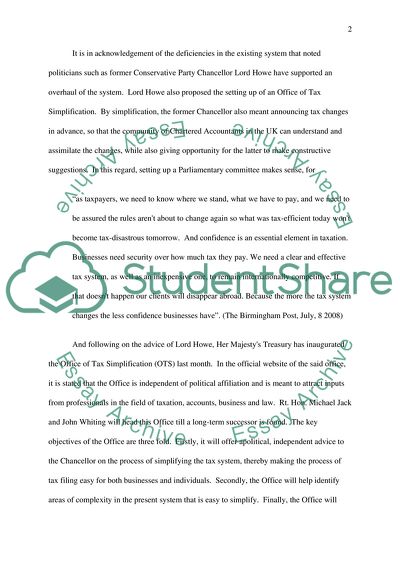Cite this document
(Should the UK Tax System be Simplified Research Paper, n.d.)
Should the UK Tax System be Simplified Research Paper. Retrieved from https://studentshare.org/macro-microeconomics/1740556-should-the-uk-tax-system-be-simplified-how-could-simplification-be-best-achieved
Should the UK Tax System be Simplified Research Paper. Retrieved from https://studentshare.org/macro-microeconomics/1740556-should-the-uk-tax-system-be-simplified-how-could-simplification-be-best-achieved
(Should the UK Tax System Be Simplified Research Paper)
Should the UK Tax System Be Simplified Research Paper. https://studentshare.org/macro-microeconomics/1740556-should-the-uk-tax-system-be-simplified-how-could-simplification-be-best-achieved.
Should the UK Tax System Be Simplified Research Paper. https://studentshare.org/macro-microeconomics/1740556-should-the-uk-tax-system-be-simplified-how-could-simplification-be-best-achieved.
“Should the UK Tax System Be Simplified Research Paper”, n.d. https://studentshare.org/macro-microeconomics/1740556-should-the-uk-tax-system-be-simplified-how-could-simplification-be-best-achieved.


